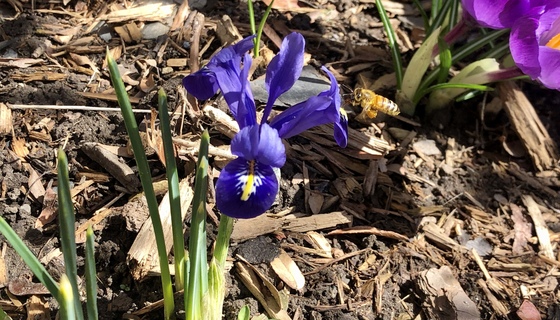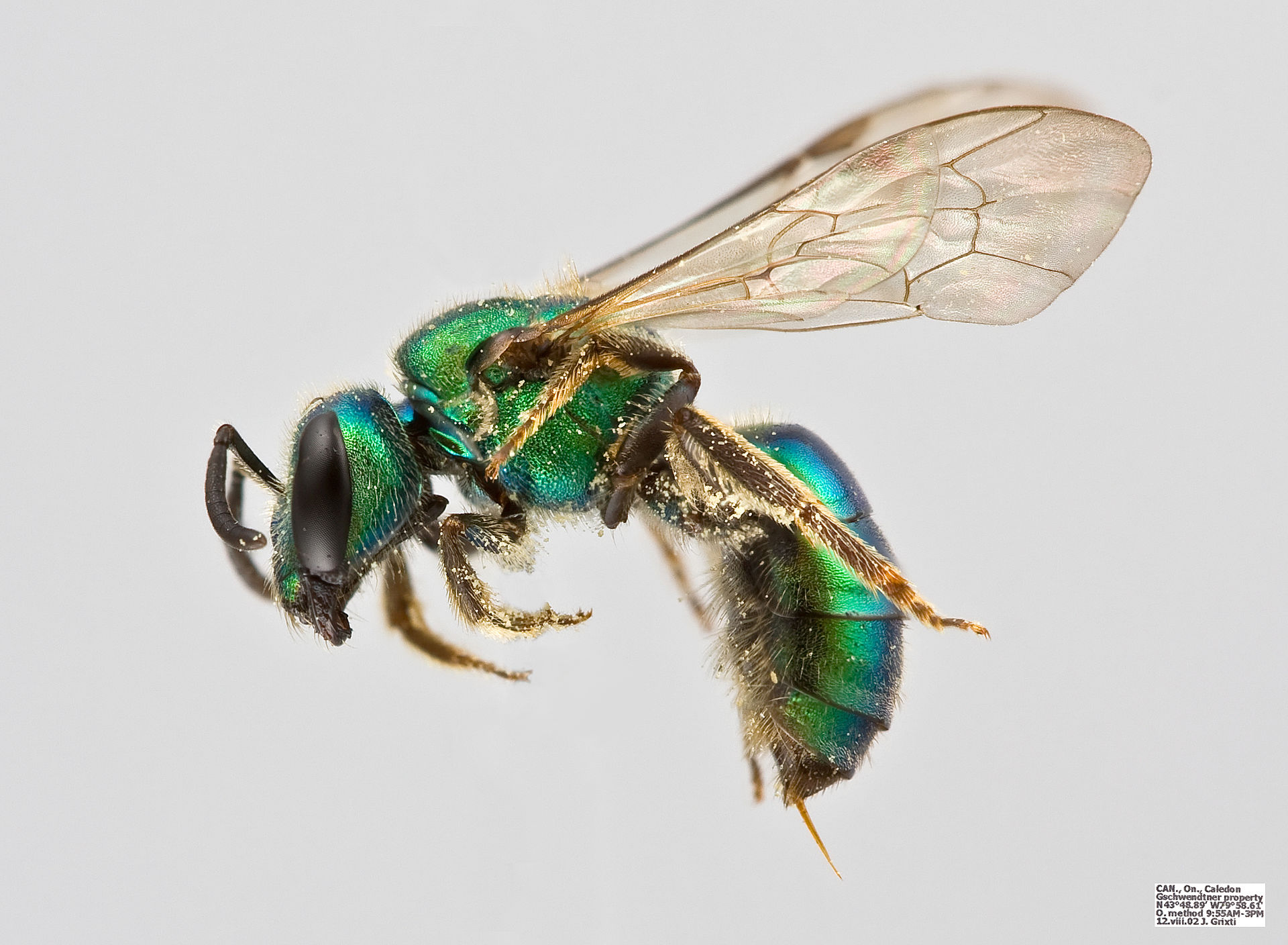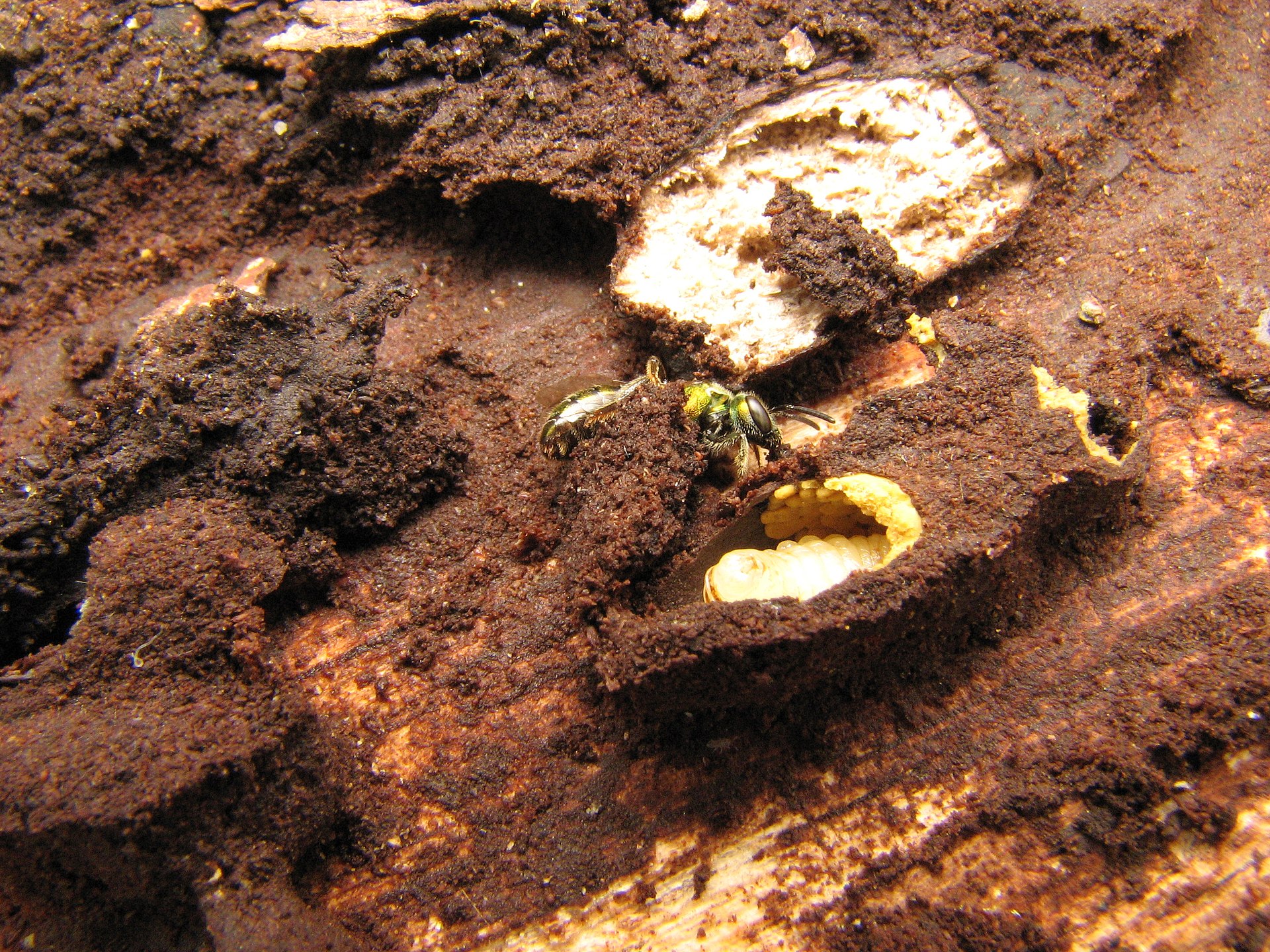May 20: World Bee Day

Since May 20 is World Bee Day, it is good to take a moment to give thanks to these little insects which we depend on for food. Across the globe, more than 75% of our food crops depend on pollinators like bees and butterflies to bear fruit. You can thank a bee every time you eat a fruit, smell a flower, or enjoy some honey. The familiar honey bee actually isn't native to Canada, but rather was brought by European settlers to pollinate their crops, and to make delicious honey.
 Ontario is home to 400 native species of bees, including sweat bees, bumble bees, leaf-cutter bees and carpenter bees. Sweat bees (genus Lassioglossum) are actually the most common bees in Southern Ontario, and the largest group of bees in the world, with more than 1,700 species. In late spring and early summer, one local, commonly seen sweat bee is Augochlora, a metallic green solitary sweat bee (pictured). Augochlora is Toronto's unofficial bee mascot, celebrated in a 65' x 35' foot mural by artist Nick Sweetman on Howland Avenue and Bloor Street, in downtown Toronto (pictured at bottom). Toronto's parks, ravines and gardens provide much food and shelter for many bees.
Ontario is home to 400 native species of bees, including sweat bees, bumble bees, leaf-cutter bees and carpenter bees. Sweat bees (genus Lassioglossum) are actually the most common bees in Southern Ontario, and the largest group of bees in the world, with more than 1,700 species. In late spring and early summer, one local, commonly seen sweat bee is Augochlora, a metallic green solitary sweat bee (pictured). Augochlora is Toronto's unofficial bee mascot, celebrated in a 65' x 35' foot mural by artist Nick Sweetman on Howland Avenue and Bloor Street, in downtown Toronto (pictured at bottom). Toronto's parks, ravines and gardens provide much food and shelter for many bees.

Despite humans' dependence on them, 35% of invertebrate pollinators are currently threatened with extinction due to habitat loss, the use of pesticides, climate change, and monoculture farming. There are many things Ontarians can do to help bees and other insect pollinators. If you have a yard, it can be a bee haven, providing nesting places and food to more than 50 species of bees. Leave your dandelions uncut in the spring: those early yellow blooms provide lots of nectar and pollen for bees at a time when other food sources can be scarce. Grow native plants like goldenrod, sunflowers and asters that bees and other pollinators adore. Don't clear off all the dead branches in your yard, and cover every inch with mulch or compost. Many solitary bees nest in rotting wood, hollow canes or bare earth, so leave some of these in your yard for them. (Augochlora nest in rotten wood pictured.) Consider making or purchasing a 'bee hotel' to house solitary bees. If you don't have a yard, you can still create a 'bee fountain' on your balcony: line the bottom of a wide, shallow dish with pebbles or marbles and fill it with water, such that the tops of the pebbles or marbles poke through. The bees will land on the pebbles to sip the water. During her Vishu message, Amma similarly encouraged everyone to set out water for the birds: "Loving and serving God’s creatures is the easiest way to make our heart expansive."

